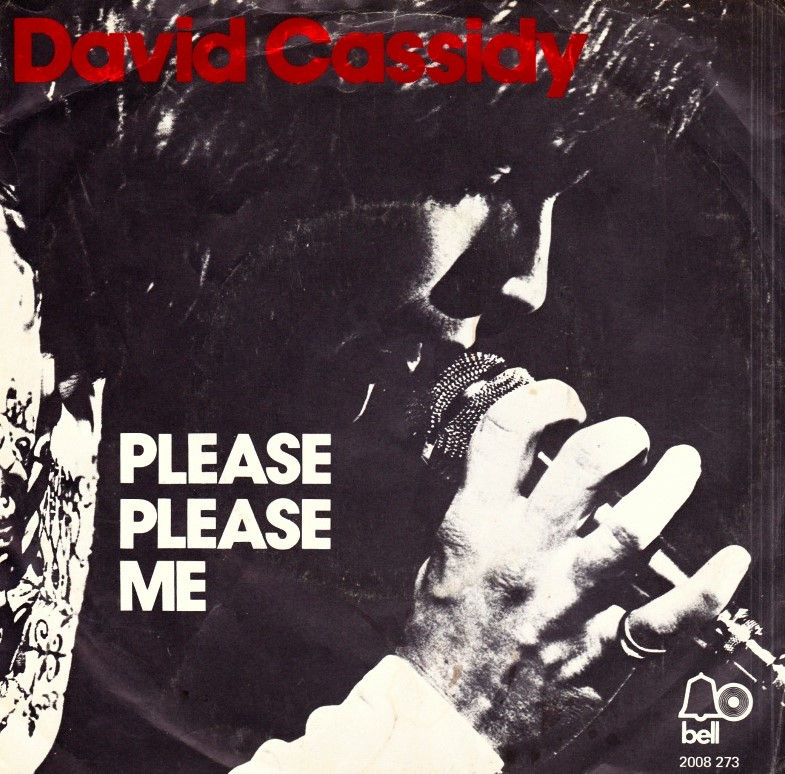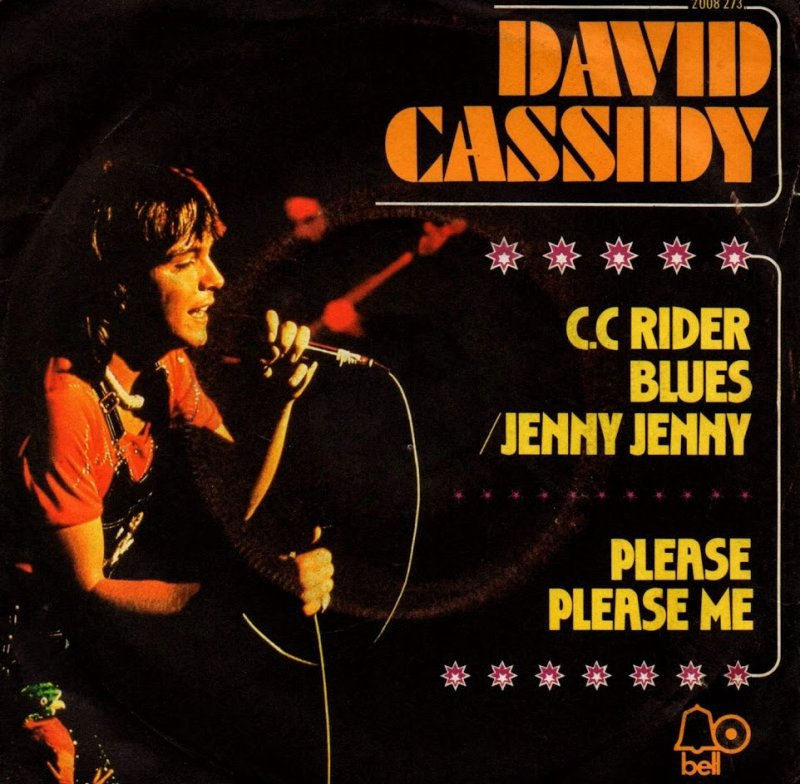July 12, 1974:
- David Cassidy
- Jul 12, 1974
- 4 min read
Updated: Jul 12
"Please Please Me" / "C.C. Rider Blues / Jenny Jenny" by David Cassidy was released as a single on Bell Records in the UK.
This 7", 45 RPM vinyl single (catalog number BELL 1371) was drawn from his live album Cassidy Live!, recorded during his 1974 world tour in Britain, capturing the height of "Cassidy-mania." The single reflects Cassidy’s attempt to showcase his versatility as a performer beyond his teen idol image.

Release Details
Release Date: July 12, 1974.
Label and Catalog: Bell Records, BELL 1371
Format: 7", 45 RPM vinyl
Publishers: A-side ("Please Please Me") credited to Dick James Music Ltd.; B-side ("C.C. Rider Blues / Jenny Jenny") credited to Leeds Music Ltd. / Venice Music Ltd.
Matrix/Runout: A-side: BELL 1371 A-1U; B-side: BELL 1371 B-1U
Production: Produced by David Cassidy and Barry Ainsworth
A-Side: "Please Please Me"
Song Details: A cover of The Beatles’ 1963 hit, written by John Lennon and Paul McCartney. Cassidy’s version, recorded live, has a runtime of 2:02 (or 2:17 in some listings). It retains the energetic pop-rock feel of the original but is infused with Cassidy’s vocal style and the live performance’s raw energy.
Performance: The track captures the frenetic atmosphere of Cassidy’s 1974 UK concerts, with audience screams underscoring his dynamic delivery. Critics noted its high-voltage performance, with Cassidy doing justice to the Beatles’ classic while adding his own flair.
Chart Performance: "Please Please Me" reached #16 on the UK Singles Chart, reflecting Cassidy’s strong popularity in Britain at the time. It did not chart significantly in the US, aligning with the limited impact of Cassidy Live! in that market due to Bell Records’ mid-1970s slump and transition to Arista Records.

Reception: Reviews are mixed. AllMusic’s Dave Thompson praised Cassidy’s showmanship, noting the track as a highlight of Cassidy Live! for its energy and appeal. However, some European reviews (e.g., hitparade.ch) called it an “unnecessary” cover, with sentiments ranging from “listenable” to “a misguided attempt.” Fans, however, appreciated its inclusion in the live set, as seen in Amazon reviews praising its rock edge.
B-Side: "C.C. Rider Blues / Jenny Jenny"
Song Details: A medley combining “C.C. Rider Blues” (written by Ma Rainey, credited with Enotris Johnson) and “Jenny Jenny” (written by Richard Penniman, aka Little Richard). The live recording runs for 4:56 (or 4:40 in some listings). The medley blends traditional blues with high-energy rock ‘n’ roll, showcasing Cassidy’s versatility.
Performance: Performed with a backing band including Michael Been (bass and background vocals), this track is noted for its “high voltage” energy, with Cassidy delivering a spirited rendition that surprised audiences unfamiliar with these classic rock songs. The medley is a standout for its raw, rocking quality, as highlighted in Amazon reviews.

Reception: The B-side was well-received for its dynamic live performance, with reviewers noting Cassidy’s ability to elevate lesser-known tracks. Amazon customer reviews describe it as “something special,” with Cassidy’s rendition surpassing expectations for a teen idol tackling classic rock. It was not released as a standalone single but gained attention through Cassidy Live! and streaming platforms like Spotify.

Context and Cultural Impact
Cassidy Live! Album: The single was extracted from Cassidy Live!, David Cassidy’s fourth solo album and his final release on Bell Records, which peaked at #9 on the UK album charts but had minimal US impact. The album captured the hysteria of Cassidy’s 1974 world tour, with tracks like “Please Please Me” and “C.C. Rider Blues / Jenny Jenny” showcasing his ambition to be seen as a serious rocker rather than just a teen idol. AllMusic’s Dave Thompson called it a “peculiar document” that highlights both the frenzy of Cassidy’s fanbase and his showmanship, though rock history has often sidelined him.
Career Context: In 1974, Cassidy was at the peak of his fame but nearing the end of his teen idol phase. The live album and single reflect his attempt to broaden his musical credibility with covers of rock and blues standards, alongside hits like “Daydreamer” and “How Can I Be Sure.” The choice of a Beatles cover and a blues/rock medley was strategic to appeal to both his young fanbase and older rock audiences.
Critical Analysis:
While “Please Please Me” was a commercial success in the UK, its critical reception varied due to comparisons with The Beatles’ iconic original. The B-side medley, however, is often praised for its bold energy and Cassidy’s ability to reinterpret classic tracks. The single’s release during Bell Records’ decline limited its US exposure, but its UK chart performance and inclusion in Cassidy Live! cemented its place in Cassidy’s discography. Fan-driven sources like davidcassidy.com and Amazon reviews highlight its significance in showcasing Cassidy’s live prowess, though some critics argue his teen idol label overshadowed his rock ambitions.

Availability Today
Digital Access: Both tracks are streamable on Spotify, YouTube, and Apple Music, either as part of Cassidy Live! or as individual tracks. The 1974 live recordings are also included in compilations like Bell Greats Vol. 2.
Reissues: The Cassidy Live! CD by Real Gone Music (US) and Cherryred 7Ts (UK) includes both tracks, with high-quality sound and detailed liner notes, making it a preferred format for modern listeners.
Conclusion: "Please Please Me" / "C.C. Rider Blues / Jenny Jenny" single is a snapshot of David Cassidy’s 1974 live performances, blending a Beatles cover with a blues-rock medley to highlight his vocal energy and stage presence. While “Please Please Me” achieved moderate UK chart success (#16), the B-side medley is celebrated for its raw power and Cassidy’s ability to tackle diverse genres. Despite limited US impact, the single remains a collectible piece of Cassidy’s discography, valued by fans and available through vinyl markets and streaming platforms. It underscores his attempt to transcend the teen idol label, though history has often confined him to that role.



Comments